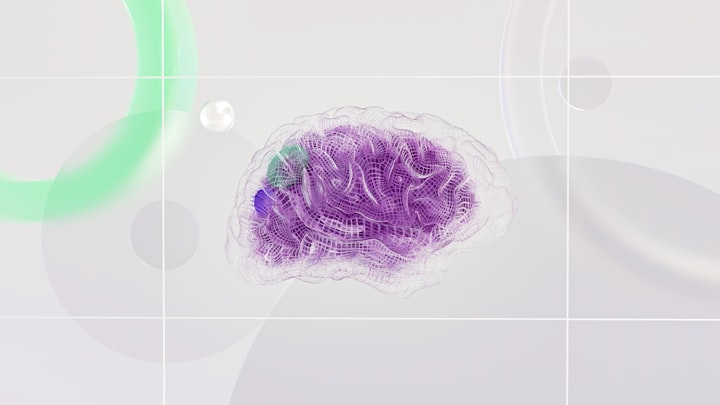
Have you ever argued with yourself in your head? Or maybe caught yourself making up excuses for why you ate that extra slice of pizza?
We all have that persistent inner voice narrating our lives, but what if that voice — the very core of who we think we are — isn’t quite as real as it seems?
That’s the intriguing suggestion coming from both Eastern philosophy and some surprising findings in neuroscience.
For millennia, Eastern traditions like Buddhism have argued that our sense of self is an illusion, a constantly shifting narrative constructed by the mind.
Now, brain research is starting to shed light on this concept, revealing how our own brains might be creating the “me” we experience.
The Pilot vs. The Process: Two Views of the Self
In the West, we often think of ourselves as having a stable, unchanging self — like a pilot at the helm of our ship.
This “pilot” makes decisions, controls our actions, and experiences the world around us. Eastern philosophies, however, propose a different model.
They suggest the self is more like an ever-flowing stream of consciousness, shaped by our thoughts, emotions, and experiences.
There’s no fixed “pilot” in charge; it’s a continuous process of being.
The Split-Brain Experiment: When Your Brain Tells Two Stories
Here’s where things get fascinating.
Scientists studying patients with a unique condition called “split-brain” have stumbled upon some mind-blowing discoveries. In these patients, the two halves of the brain — connected by a bundle of nerves called the corpus callosum — have been surgically separated. This allows researchers to observe each half functioning independently.
One famous experiment involved showing a word like “WALK” only to the patient’s right brain (which controls the left side of the body). The patient’s left hand, connected to the right brain, would immediately rise and start walking.
But when asked why they were walking, the patient’s left brain (responsible for language) might invent a reason, like “I need to go get a soda.” The left brain, having no access to the original instruction, was simply making up a story to explain the action!
The Interpreter at Work: How Your Brain Creates Your Reality
This split-brain research highlights a crucial role of the left brain — it acts as an “interpreter,” constantly trying to make sense of the world and our experiences.
The problem is, sometimes the interpreter gets a little overzealous. It weaves narratives about who we are, why we do things, and even justifies our actions. We mistake these stories for reality, becoming entangled in the illusion of a fixed, unchanging self.
Why Does This Matter? The Root of Our Suffering
So why should we care about this battle between Eastern philosophy and brain science over the nature of the self? It turns out, it has a profound impact on our well-being.
When we identify strongly with this illusionary self, we become overly attached to our thoughts, feelings, and possessions. Any perceived threat to this self — a bad comment, a job rejection — triggers anxiety and suffering.
By understanding the impermanent nature of the self, Eastern traditions and neuroscience offer a path to greater peace.
It’s not about denying our experiences, but about learning to observe them with detachment, recognizing them as part of the ever-flowing stream of consciousness. This shift in perspective can lead to less attachment, less suffering, and a greater sense of inner peace.
Beyond Philosophy: The Brain Mechanisms at Play
Neuroscience helps us understand why our brains concoct this elaborate illusion of the self.
Certain brain regions — mainly those in the left hemisphere, including the prefrontal cortex — are involved in creating this sense of a continuous, personal narrative. They link together our memories, beliefs, and current experiences to create the “story of me.”
The brain is constantly trying to make sense of the world and predict what will happen next. This “predictive coding” process helps us navigate our environment, but it can also lead to the construction of a rigid perception of ourselves, where we get attached to our self-narratives as if they were unchangeable truths.
Applying Self-Awareness for Greater Well-being
So, does this mean we’re doomed to be slaves to our inner storytellers?
Not at all!
The key is to shift from complete identification with the illusion of self to observing it with awareness.
Here’s how this knowledge can transform your daily life:
- Mindfulness: Practices like meditation teach us to observe our thoughts and emotions without getting caught up in them. We start to recognize that the inner voice is not the sum total of who we are, but simply a stream of mental activity.
- Self-Compassion: When we understand the brain’s natural tendency to create a sense of self, we can be kinder to ourselves when we fall into old patterns or react negatively. Instead of self-criticism, we practice understanding towards our own experiences.
- Freedom from Attachment: Lessening our identification with the “me” allows us to let go of the need to constantly defend our ego. We become less bothered by external judgments and find greater freedom from anxiety related to social expectations.
The Journey of Self-Discovery
Understanding that your sense of self is a dynamic construct, not a fixed entity, can be incredibly liberating. It enables you to start taking charge of your own narrative.
While complete detachment from the illusion of self may be an elusive lifelong practice, even small shifts in how you relate to your thoughts and emotions can lead to greater peace and a deeper understanding of your true nature.
About the Creator
Jin Park
Writer | Marketing Grad | B.Sc. Computer Science | I question everything, explore the unconventional, and never shy away from the uncomfortable






Comments
There are no comments for this story
Be the first to respond and start the conversation.